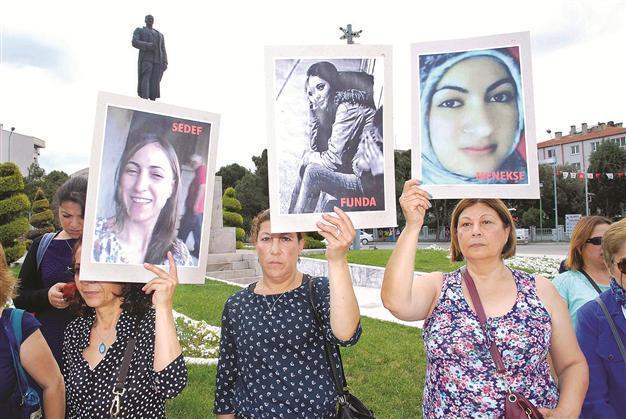‘Poverty and fear’ keep hold on women subjected to violence in eastern Turkey
ISTANBUL

DHA Photo
Poverty and fear are the major reasons why most women subjected to domestic violence in eastern Turkey opt not to take action, according to a new report released by a women’s rights group.
A significant number of the women interviewed by the Women Center Foundation (KAMER) said women did not take action to avoid violence because they feared repeat violence and they had economic concerns, according to the report, which was compiled after face-to-face interviews in 25 provinces in eastern, northeastern and southeastern Turkey.
Of the 24,723 women interviewed, 4,500 - roughly 18 percent of the total - said they themselves had contacted KAMER over violence they experienced. However, only 1,308 - or 5 percent of the total - said they took “solid steps” to stop violence.
Some 61.4 percent said they thought most Turkish women subjected to violence took no solid step to escape violence, while 70.8 percent said they thought the main reason for this inaction was fear of consequences.
Some 20.2 percent said unfamiliarity with the necessary authorities to contact in the event of violence is another reason for the women’s inaction, according to the report.
In addition, a majority of women told the survey that economic problems and poverty are their most urgent problems, meaning that they neglect to deal with the violence to which they are subjected out of consideration for their economic situation.
“Many of the women who said they were exposed to violence told us that their children were not even sufficiently nourished, so they themselves could not even think about their own problems about domestic violence as a priority,” stated the report.
KAMER conducted the survey in several languages including Turkish, Kurdish and Arabic between January 2014 and May 2015, with contributions from the European Union delegation to Turkey, the Istanbul University Medical School, and the Open Society Foundation.
“Violence against women is a systematic problem and is fuelled by inadequate education, low income levels, language-related communication issues, and wars and conflicts,” the report said in its recommendations to fight against violence against women.
“That is why several development programs should immediately be put forward, primarily to advance the quality of life of impoverished women who have not had the right to education, as well as those who have problems with communication outside of their native language,” it adds.
Of the women interviewed by KAMER, 9,738 spoke Turkish as their native tongue, 12,154 women spoke Kurdish, 2,137 spoke Zazaki, and 646 spoke Arabic.
Some 20,299 of the 24,723 women interviewed were married, while 8,191 of this total were younger than 18 when they were married.
As for the literacy rate, 26.8 percent of the women were illiterate and 92.7 percent had not attended any higher education institution.
